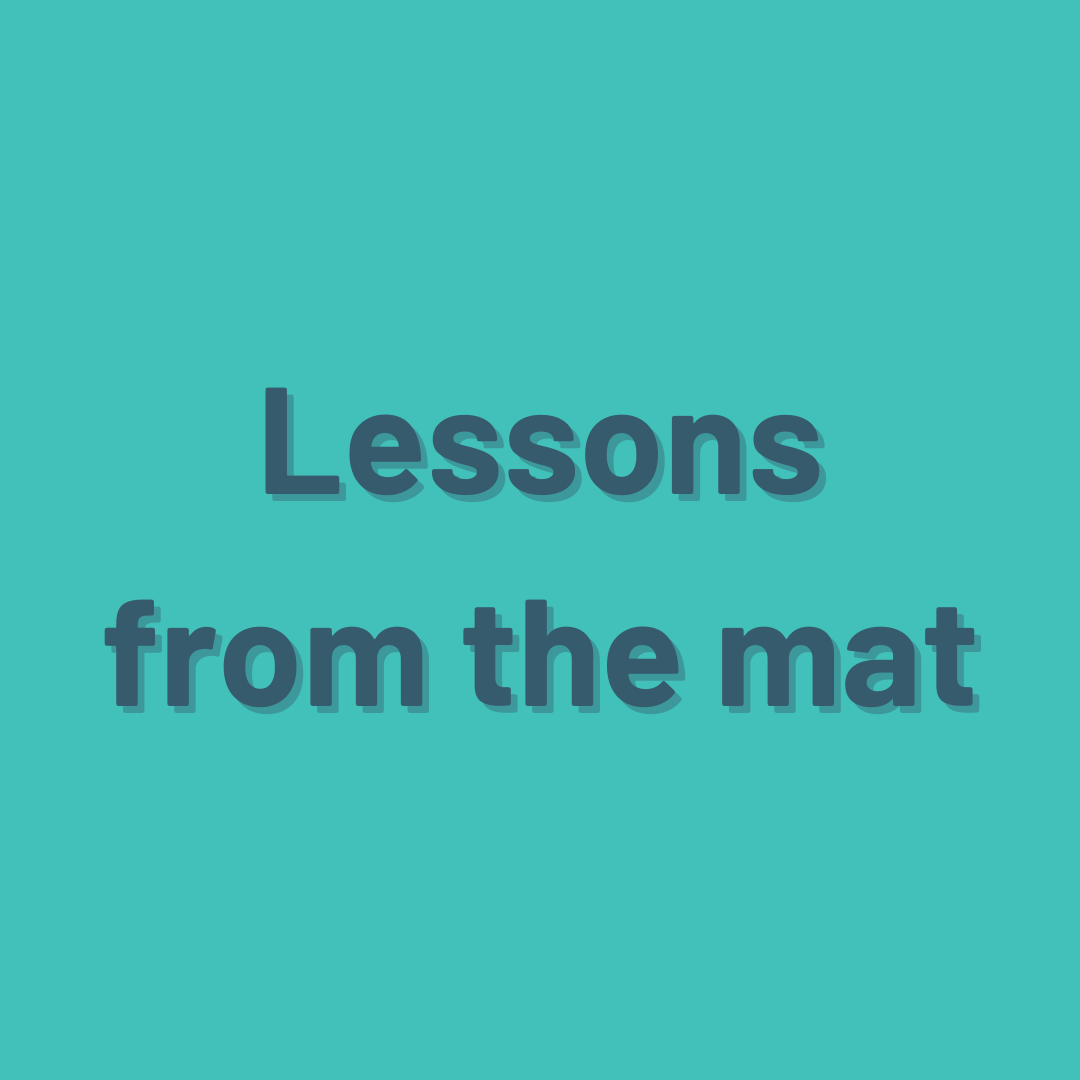Lessons from the mat
I've been pondering how to be kind to yourself while also not letting yourself off the hook, as it's also been coming up with my students and clients. It's a delicate balance between the soft and hard qualities we all embody.
Last week, I was having a conversation with a student after class. She told me that she was feeling frustrated with her practice. While the practice felt less physically demanding than when she first started, the mental aspect had gotten more challenging.
This happens a lot. When people first come to Ashtanga, they are so busy memorizing the practice, remembering the next pose, trying to make these shapes with their bodies, and remembering to breathe. There is not much room for their minds to be doing anything other than what they are doing at that moment. It keeps them totally present.
But once they've been practicing for a while, have the practice memorized, and their breath flows, their minds can easily get distracted. They find that they're all over the place, thinking of everything that doesn't matter but feels like it does in that moment.
They have trouble being as present as they were when they first started.
They often need to remember that they are just learning to focus their minds, which is no easy task!
There is no way to be perfect when learning a new skill. I've been practicing for over two decades, and I'm still working on that skill daily. 😉
This is precisely where my student was, lost in her head. She would stop and try to make her mind focus, leaving her even more frustrated.
If you've ever tried that before, it is the equivalent of someone telling you to calm down when you are in an argument; it has the opposite effect; it just gets you more fired up.
The more my student tried to force her mind to focus, the less focused she was. She had this expectation of how she wanted things to go, and when things weren't working out that way, she got frustrated and beat up on herself. She was ready to walk away from the thing that would help her the most.
The Ashtanga practice brings all your shit to the surface. It puts a mirror up to your face and shows you all the parts of yourself, whether you want to see them or not. Often, the parts we want to ignore are the ones that come flooding to the surface, screaming at us for attention.
Everything that comes up off the mat inevitably comes up on your mat. There is no escaping dealing with the parts of yourself that you may prefer to ignore.
Moments of anger, irritation, and frustration can be challenging. We don’t want to participate in activities that make us feel this way, so we may not want to roll out our mat.
It's hard to learn to accept and be with what's happening at the moment, especially when we don't like it.
So we fight. We talk shit to ourselves, and we find all the ways to prove to ourselves that we aren't worthy of whatever it is that we are trying to do. We give up on ourselves.
This is precisely what our yoga practice is about—learning to accept all parts of ourselves, especially those we don't like.
Sometimes, what's kinder is also harder: showing up and doing the work instead of giving yourself an out.
Even though it's harder to do the work, it always feels better afterward.
We like to act like it's easier to stay small and comfortable, but it is just as hard, if not harder, than doing the work; it's just more familiar, so it feels more comfortable.
If you can learn to meet yourself where you are in challenging moments, then you are finding a way to be a little kinder to yourself.
This is the balance between hard and soft.
You continue to show up in a kind way that serves you instead of degrades you. You find ways to have your practice support and nurture you through all the times, good, bad, and ugly. This is how you create a consistent and sustainable practice.
And when you do this on your yoga mat, you can do it for the rest of your life, too.
That's the trick, isn't it? Find ways not to cop out but to show up, be kind to yourself, and not push but not give in. It's a delicate balance but one worth exploring.
The things we want in life are usually challenging. They require us to show up, be consistent, and do the work.
Our efforts will be rewarded, but not always in the expected time frame.
Is this something you struggle with in your life? I'd love to hear your thoughts on it.
